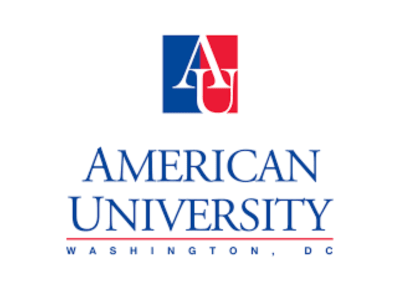
Master of Arts in International Economics
American University

Key Information
Campus location
Washington, USA
Languages
English
Study format
Distance Learning, On-Campus
Duration
18 months
Pace
Full time, Part time
Tuition fees
USD 1,922 / per credit
Application deadline
Request info *
Earliest start date
Sep 2024
* fall priority | spring priority: November 1
Introduction
With AU's Economics MA, you will work to resolve society’s most important challenges. Our scholars create gender-aware macroeconomic toolkits, recommend tax policies to reduce income inequality, illuminate caregivers' socio-economic contributions, improve health outcomes — and so much more.
Our engagement-oriented MA offers four specializations to fit your interests and goals: Applied Economics (on campus or online), Development Economics, Financial Economics, and Gender Analysis. We also offer an MA in International Economics.
Tailor Your Degree
We prepare students for careers in a range of areas, from business to academia to public policy. Our students develop the skills to analyze data, explain outcomes and predictions, question theoretical frameworks, and convey concepts to a wide audience.
The MA culminates in students' self-designed capstone projects investigating issues within their selected field of Applied Economics, Development Economics, Financial Economics, Gender Analysis, or International Economics:
- Applied Economics On Campus: Offers a rigorous combination of theoretical courses in economics and field courses such as labor, international finance, trade, and economic history
- Applied Economics Online: All courses can be completed online at times you choose. Offers a rigorous combination of economic theory, econometrics, and selected field courses
- Development Economics: Focuses on the micro- and macroeconomic concerns that affect developing countries; includes a required, two-course sequence on development economics
- Financial Economics: Choose from classes on financial economics from the Department of Economics and the Kogod School of Business
- Gender Analysis: Applies gender analysis to a variety of economic problems, including those in labor economics, public finance, development, and international trade and investment.
Career Opportunities
Consistently ranked as one of the best cities for job seekers, DC offers access to an extraordinary array of professional opportunities for trained economists. According to the Bureau of Labor Statistics, the DC metropolitan area is home to over one-third of all economists nationwide. Nationwide employment of economists is projected to grow 6 percent from 2022 to 2032, faster than the average for all occupations.
Our faculty’s relationships with DC institutions open doors in the nation’s capital: 61 percent of our students complete internships with prospective employers. Our partnership with the National Association for Business Economics (NABE), the preeminent professional association for private-sector economists, further increases job opportunities — nearly 80 percent of jobs are never publicly listed — by giving our students access to NABE’s private listing of job openings.
Our students and graduates find successful careers and rewarding internships with some of the world’s most important institutions, including
- Board of Governors of the Federal Reserve System
- Freddie Mac
- Interamerican Development Bank
- International Monetary Fund
- PricewaterhouseCoopers LLP
- US Bureau of Labor Statistics
- US Department of Health & Human Services
- The World Bank Group
In addition, many of our graduates go on to pursue PhDs in Economics.
Admissions
Gallery
Curriculum
Core (24 credit hours)
- ECON-600 Microeconomics (3)
- ECON-601 Macroeconomics (3)
- ECON-605 Introduction to Mathematical Economics (3)
- ECON-671 International Economics: Trade (3)
- ECON-672 International Economics: Finance (3)
- SIS-665 International Trade Relations (3)
- SIS-666 International Financial Relations (3)
- SIS-751 International Political Economy (3)
Research Methodology (6 credit hours)
Methods I
Complete 3 credit hours from the following:
- ECON-623 Applied Econometrics I (3)
- STAT-615 Regression (3)
Methods II
Complete 3 credit hours from the following:
- ECON-624 Applied Econometrics II (3)
- STAT-522 Time-Series Analysis (3)
- STAT-627 Statistical Machine Learning (3)
Capstone (3 credit hours)
Complete 3 credit hours from the following:
- ECON-680 Economics MA Capstone Seminar (3)
- SIS-793 Practicum in International Affairs (3) (topics)
Electives (3 credit hours)
3 credit hours from SIS coursework at or above 500-level, with approval of program director.